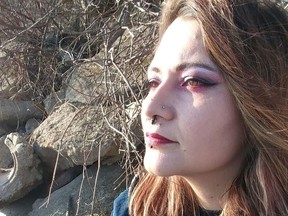SPENCER: Compassion versus ‘cancel culture’

Article content
Recent events have brought some of Canada’s worst historical crimes into international focus. Urgings to cancel Canada Day, brought by confirmation of what many knew to be true. Children that never returned home from Indian Residential Schools, have been located.
For many this isn’t a history lesson or a discovery just brought to light. The survivors told us. We didn’t listen. The perpetrators knew. The truth of these genocidal crimes omitted from our nation’s history books, records destroyed, conversations ignored and covered up. Systemic racism and oppression of Natives, perpetuated.
I am the ancestor of colonists. I’m not responsible for decisions of past governments and churches. However, if I ignore systematic, residual, left over oppression and I allow that to continue, there holds my responsibility.
I had a recent conversation with a friend. Elvira French is in the dark of her family’s history, many from Munsee Chippewa Nation.
“It just wasn’t discussed.”
However, now as an adult looking back, she has a great understanding of the discussions which her father spoke about, in regards to cultural genocide.
Elvira grew up on the Indian Reserve for a few years as a very young girl. Her father was very quiet about the fact that he was Native. He didn’t share stories, history or background of his people and they didn’t attend powwows.
“He constantly hushed us, telling us, ‘You don’t want people knowing there are natives around here. White man doesn’t like Natives.’”
Her father never taught her or her siblings their Native language other than three common phrases: “Meegwetch” meaning “thank you,” a phrase she can’t remember but translated to ‘good little Indian girl,’ which he would always say to Elvira and her sisters, and the final one, “which looking back is disturbing,” says French. “I can’t remember the exact phrase but it translated to ‘I am not an Indian, I am a white man.’”
As an adult, Elvira now sees how the generational trauma caused by the racism and oppression of our country has affected her more than she knew.
“I hated the fact that I was Native. I wanted to keep it quiet. I felt so different.”
After moving off the reserve, she noticed how different she looked and was being looked at. Elvira shared, “My hair, skin and eyes were much darker. I remember being told by classmates that I wasn’t pretty and no one would ever find me attractive. I always knew and felt it was because of my brown skin and indigenous features.
“I always loved it when someone took a photo and the flash white-washed me and I looked ‘normal.’ At times, it still feels like I am judged and racially-profiled for the way I look or the who I am.”
In the last couple of months, French has experienced places not knowing or accepting her government issued status card as an Indigenous person, as an example.
At times, Elvira feels lost and like she doesn’t belong, embarrassed of her lack of knowledge of her heritage and customs, while also feeling judged by society. She has sought out to learn on her own, is grateful to see more opportunities by her community, and to learn more by her culture being showcased and discussed more. She is taking an Indigenous Language course, a language that the Residential schools looked to abolish.
Compassion over cancel culture attitude is an option. Off the heels of a wild 18-month pandemic ride, of course we all want to celebrate. But imagine if you can, you live in a large home of many. Someone comes into your home and takes over running your home, against your will. They force you assimilate and forget your heritage. The bones of a person that was missing, are found in the home, while others that survived, have told you this new home owner has abused, raped and murdered, many. As they are traumatized and grieving, would you still say ‘let’s have a party and celebrate this home’?
Mindful compassion offers awareness in the present moment when we’re struggling with stressful feelings (mindfulness) and responding with kindness and understanding (compassion). With over 1,000 children’s unmarked graves located in only five of the 130 residential schools that operated in Canada, perhaps offering compassion, kindness and understanding of what they just might be trying to process right now, could be a perspective.
Postmedia is committed to maintaining a lively but civil forum for discussion. Please keep comments relevant and respectful. Comments may take up to an hour to appear on the site. You will receive an email if there is a reply to your comment, an update to a thread you follow or if a user you follow comments. Visit our Community Guidelines for more information.